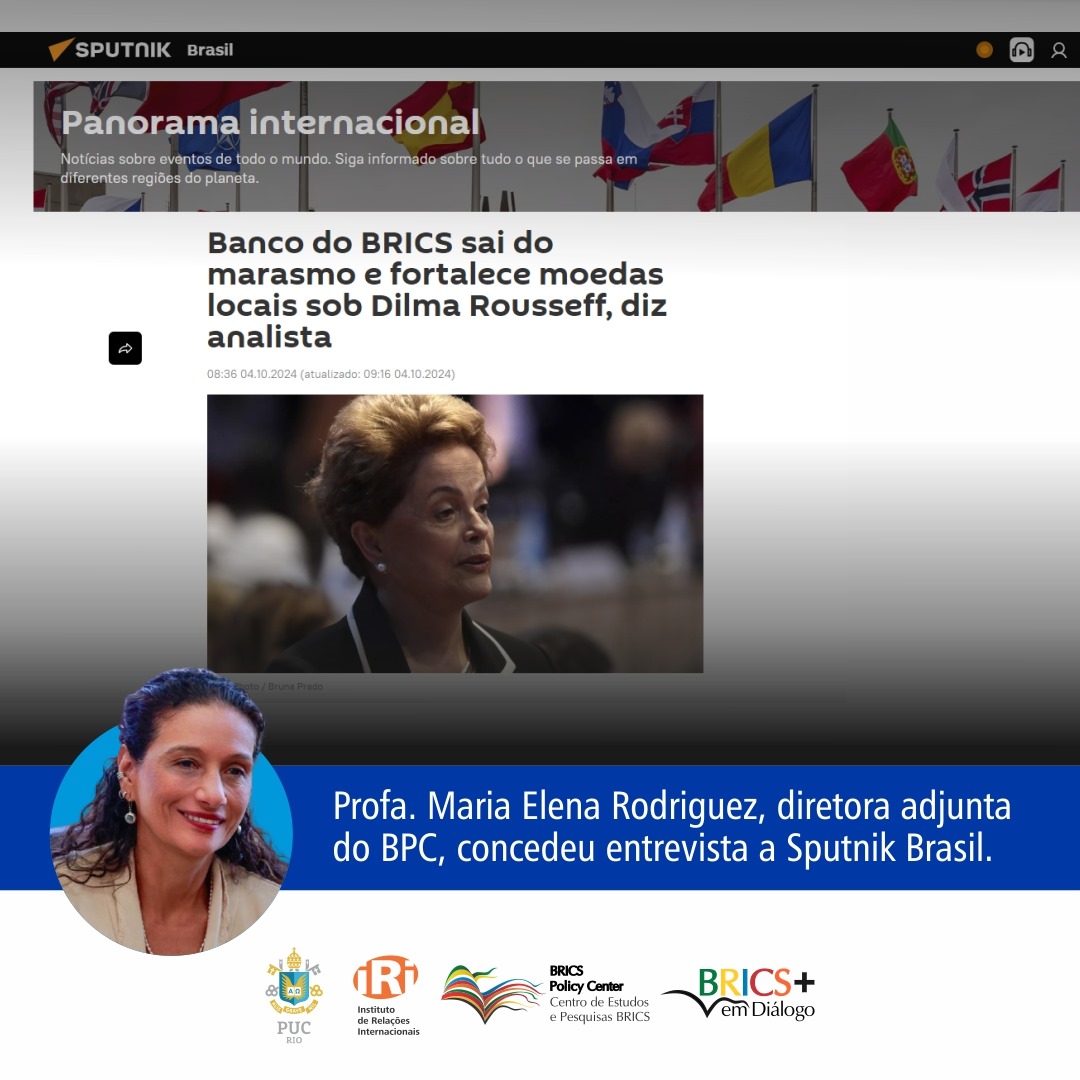
Professor and researcher at the BRICS Policy Center, Maria Elena Rodriguez, spoke to Sputnik Brasil about the New Development Bank or BRICS Bank.
Professor and researcher at the BRICS Policy Center, Maria Elena Rodriguez, spoke to Sputnik Brasil about the New Development Bank or BRICS Bank.
Maria Elena pointed out that the leadership of former president Dilma Roussef at the head of the New Development Bank (NDB) “lifted the bank out of a certain institutional doldrums.” In addition, the professor highlighted issues such as the de-dollarization of financial transactions between member countries promoted by the Rousseff administration, as well as issues of sustainability, social inclusion and the fight against inequality.
The former president’s achievement underscores the prestige of the institution and Brazil’s position in BRICS. This tribute recognizes Rousseff’s efforts to expand the NDB’s operations and consolidate itself as an alternative to the IMF, especially with the entry of new members and a focus on green investments. Despite financial challenges and capital constraints, Rousseff’s administration has made it possible for the bank to be more flexible in emergency projects, such as the R$5.75 billion loan for the reconstruction of Rio Grande do Sul. In this way, she has been crucial in promoting the NDB’s autonomy and sustainable agenda, reducing dependence on the international financial system, were some of the other points highlighted during the report.

